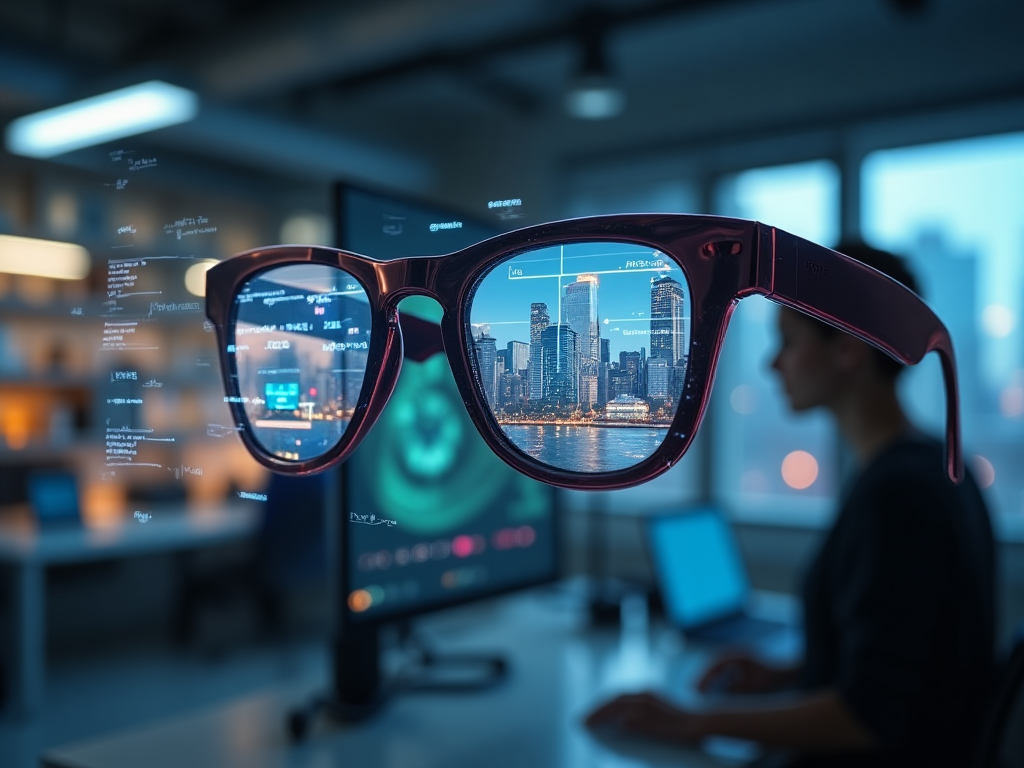
Remember Google Glass? Smart Glasses Are Back—And Smarter
Google Glass garnered news coverage a decade back, followed very soon by false news. The concept of a computer on face seemed a bit intrusive, bulky, not to mention downright ludicrous. Later in the year 2024, AI-driven smart glasses are experiencing a resurgence. However, this time, they will not simply be the cameras with a heads-up display, but will be full of real-time AI assistants, augmented reality overlays, and even automate a task simply by looking it up.
The Ray-Ban AI is released by Meta and the R1 glasses will be released by Rabbit, not to mention the rumors about whispering about a secret project by Apple utilizing AI through glasses. This shows that there is a second wave with wearable AI. And the million-dollar question here is whether these glasses will actually serve a purpose, or history is being repeated again.
The New Generation of AI Glasses: What’s Different Now?
Meta’s Ray-Ban AI – Subtle but Surprisingly Capable
The current incarnation of Meta completely abandons the science fiction look in favor of something more low-key, trendy frames, which resemble ordinary sunglasses. On the inside, however, they operate on Meta AI that:
- Translation in real time (speak in Spanish, hears the response in English immediately).
- It is a visual search (point to point of landmark and acquire historical data).
- Stream to Instagram by talking allowing voice-deficient content production.
The early adopters, such as the travel blogger Lena K., will not say anything bad about them: “I tried them in Lisbon, and the translation process was horrifyingly easy there were no embarrassing phone pauses. However the battery runs out quick when you are on a heavy AI usage.”
Rabbit R1’s Glasses – The Wildcard
Although the standalone R1 device was a hit among Rabbit fans, their new AI glasses are set to bring forth their Large Action Model (LAM) of an AI, capable not only of answering questions but also carrying out actions (booking flights, ordering food) that only the device is capable of seeing.
Potential game-changer? Maybe. However, according to AR researcher Dr. Mark Wu: “In fact, the technology is promising, but any wearable is destined to die or thrive based on social acceptance. They will fail just like Glass because people will feel like they are being recorded.”
Real-World Testing: Where Do AI Glasses Actually Shine?
Case Study: The Business Traveler’s Secret Weapon
It is a pair of Meta glasses that David R., a tech consultant recently tried on a visit to Tokyo:
- In the restaurants where it was crowded, translation served 90 percent of the time.
- Scanning of the business cards instantly rescued him of manual data entry.
- But battery stress was something tangible- he even had a power bank in case.
The Accessibility Angle
AI glasses can mean life or even death to visually impaired users. Companies such as Envision are using real-time object recognition to tell what is around them. The beta tester Maria G. says that she can just look at a menu and can barbecue it.
There is, however, a barrier:
- The European privacy laws are already testing the always-on cameras.
- Battery life is not quite up to speed with smartphones (the majority of them last 4-6 hours with their sustained use).
The Big Roadblocks: Will History Repeat Itself?
The Google Glass was not a great success because people abhorred the concept of recording without their knowledge. It is the same stigma today applied to AI glasses and they are referred to by Google as the Glashole, but they still use the terminology and think it is hilarious, so much so that it became a real verb.
Other challenges:
- Hello Fashion, Bye-Bye function– Will you wear something that does not look fashionable, but which costs $300 or more?
- Hallucinatory grandiosity of AI, or, what if the glasses mislabel a person or thing?
- Subscriber fatigue – Will Meta charge people to use advanced features?
Final Verdict: Should You Buy Them?
Are you someone who travels a lot, one with a love of tech, or an accessibility-user? AI glasses are almost something you need, rather than some gimmick. What about a typical person? Suppose it were another year. The battery life should be enhanced, and AI should become even smoother.
Thought-provoking takeaway:
The effectiveness of the AI glasses will not be based on the specifications, but it will be determined by the acceptance of the society. Is the world where every glance can be subjected to an AI ready? Or will the threat of privacy consign these devices to the margin?
How do you see that? Would you be wearing the Al smart glasses or is it still too far fetched? Leave a message in comment section below and we are all debating about it in LinkedIn and X.